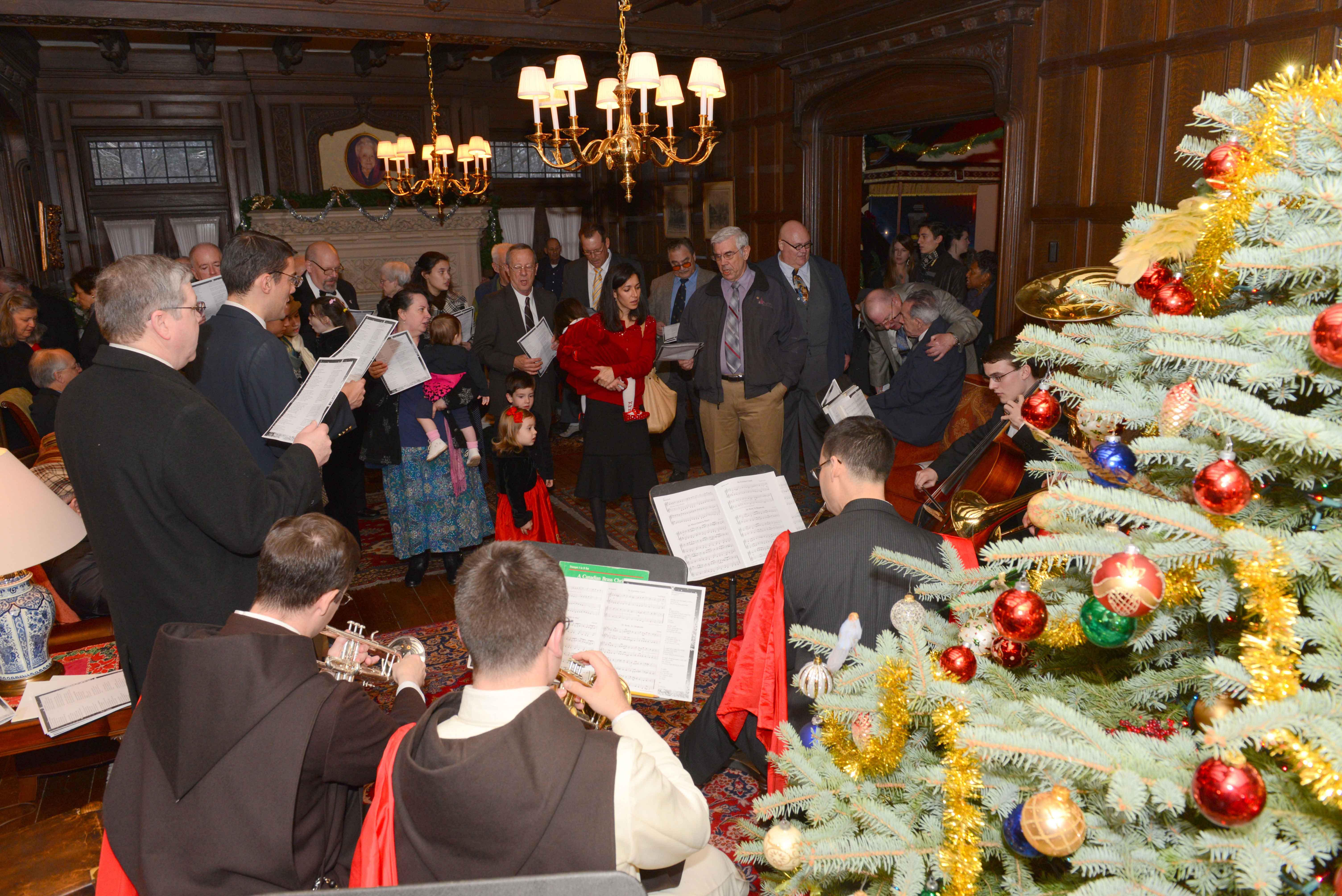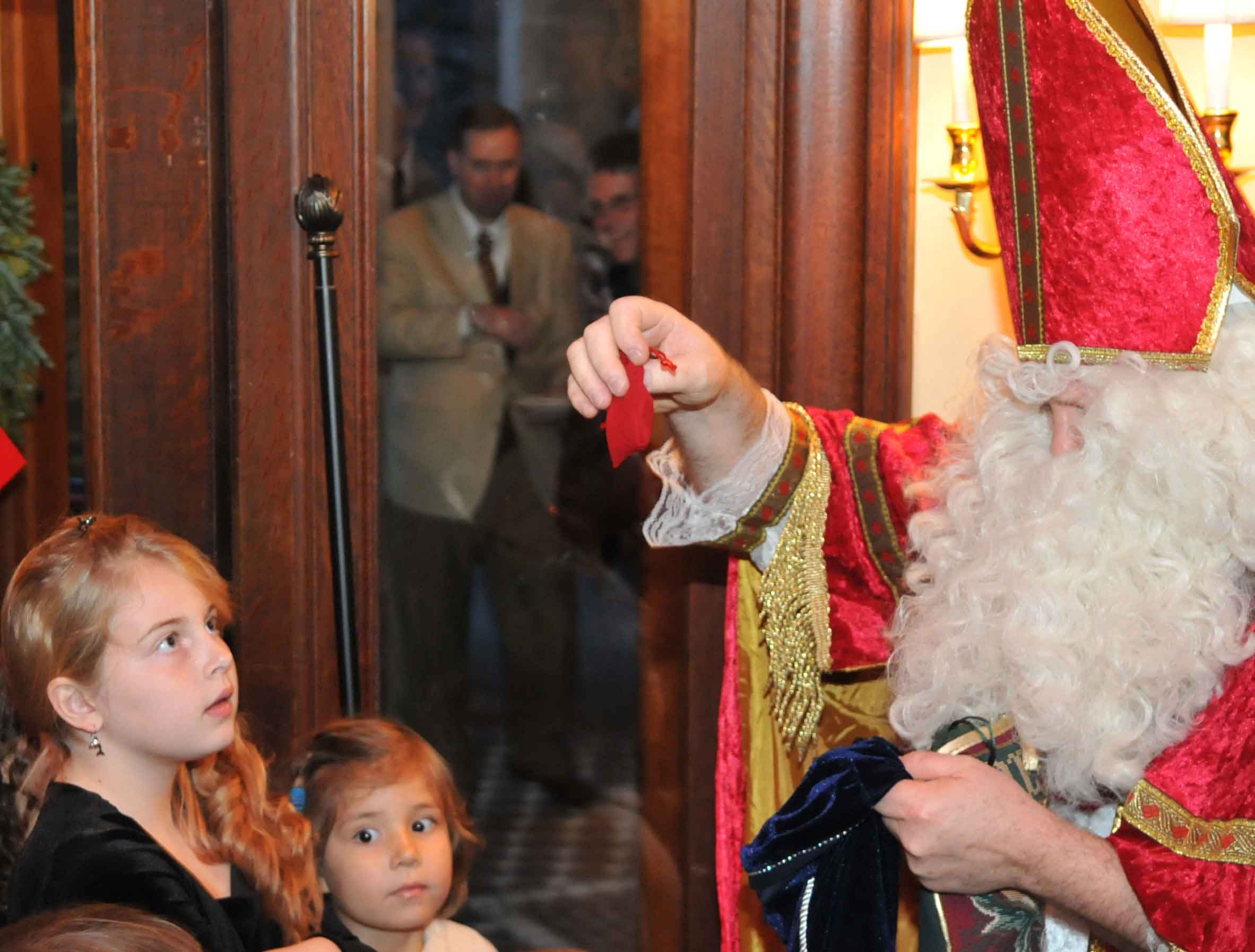 Christmas should be a time of great joy, but oftentimes it isn’t. Perhaps the joy is lost in the season’s gaudy and frantic commercialization that has turned a great holy day into a secular holiday. There is also the loud revelry of winter parties present that tends to suffocate the memories of calm Christmases past. Whatever the cause, the fact remains that the merry is often taken out of our Christmases.
Christmas should be a time of great joy, but oftentimes it isn’t. Perhaps the joy is lost in the season’s gaudy and frantic commercialization that has turned a great holy day into a secular holiday. There is also the loud revelry of winter parties present that tends to suffocate the memories of calm Christmases past. Whatever the cause, the fact remains that the merry is often taken out of our Christmases.
It is not as if people do not try to celebrate Christmas. They do all the right things: put up Christmas trees, get together with family, send out Christmas cards or even go to church. But this vague desire to be merry often triggers only warm and fuzzy feelings. The final result is a sensation of a great emptiness, of something that has gone missing.
There is a reason for this emptiness. Christmas cannot just be a jumble of fuzzy feelings. It asks more of us than simply gathering together with family and friends or putting in a shallow appearance at church. The feast does not lend itself to mediocrity. It refuses to be reduced to ornaments, holly and folly. When we turn Christmas into a social occasion, it loses its meaning and becomes empty.
The best thing to remedy this situation is to do something sublime this Christmas.
It is really the only way to make Christmas merry again. By sublime, we mean doing those things which, by their excellence, cause souls to be overawed by their magnificence, grandeur and marvelousness. It provokes what Edmund Burke rightly calls “the strongest emotion which the mind is capable of feeling.”
Doing something sublime this Christmas need not involve great expense, but it does ask that we be not niggardly and selfish. It may be experienced alone, but more often involves sharing with others. All that is necessary for the sublime to work is that we be turned toward that which inspires awe. It is only natural that our search would lead us to the manger where Christ awaits us.
Thus, doing something sublime might involve works of art, music, ideas, or feats associated with Christmas that strongly draw and overwhelm us. It involves the extraordinary not the ordinary, the beautiful not the ugly; all that is marvelous and innocent.
To enjoy a sublime Christmas, engage in activities that have always captivated the soul. Such a list might include:
1. Put up that kind of Christmas tree with all types of lights and ornaments that one can easily spend hours contemplating. Avoid the three-minute, popup, pre-lit holiday tree.
2. Participate in that kind of Christmas caroling where the person sings with full lung those beautiful Christmas carols that capture the sublime scene of that first silent night.
3. Attend a traditional Christmas concert and be overawed by a full choir and live orchestra. Marvel at the fact that so many still gather for these events in our secular days to celebrate the birth of Our Savior.
 4. Seek to live Christmas through the eyes of children. Their overawing innocence delights the soul and regenerates innocence lost. Do everything possible to cultivate this innocence in children and the child in one’s own soul.
4. Seek to live Christmas through the eyes of children. Their overawing innocence delights the soul and regenerates innocence lost. Do everything possible to cultivate this innocence in children and the child in one’s own soul.
5. Visit an elaborate and beautiful nativity scene that delights the soul by its variety and imaginative characters.
6. Attend a Midnight Mass that observes all the pomp and ceremony of the occasion, allowing all to see the sublime in the symbolism and liturgy.
All these things (and so many others) can be sublime since they fill the holiday emptiness with intense admiration, wonder and reverent love. They can be excellent, inspiring and extremely beautiful. However, they are mere means so that we might better contemplate “the reason for the season.”
The seventh and most important sublime thing we can do this Christmas is to contemplate the Christ Child in the manger under the loving gaze of His Holy Mother and Saint Joseph. We should consider the fact that Christ came to save us. “For a child is born to us, and a son is given to us.” (Is. 9:6)
On that ineffable night when Our Savior was born to Mary Ever Virgin, an immense impossibility became possible: the God-man was born. From the moment of His birth, this Divine Infant desired to bear hardship for us. We sense His striking, audacious and sublime love for us. From heaven descended torrents of graces which paved the way for our salvation and made Christian civilization possible.
Such considerations should inspire us to serve the object of our admiration and to give of ourselves freely to Him Whom we love. It is then that Christmas makes sense and is again made merry.
And so let not this Christmas be an ordinary and empty holiday. Let it not be a bland celebration of self. Rather, fill this special season with all that which can fill us with reverent love, awe and wonder for the Christ Child. Let it be a merry and sublime Christmas!

